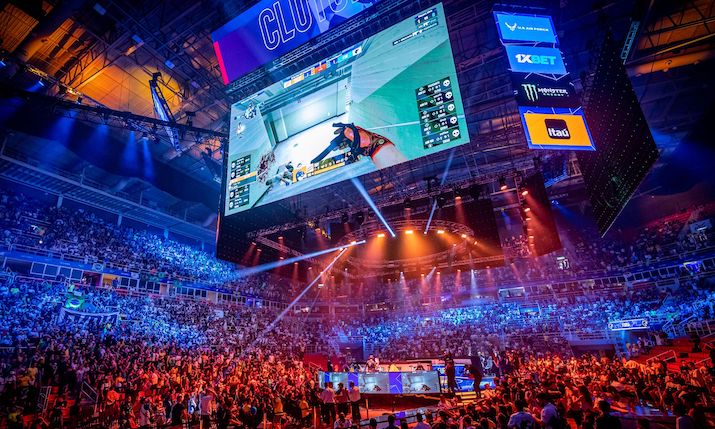Boat Drops: Your Portal to Aquatic Adventures
Explore the world of boating with tips, news, and insights.
CSGO Esports: Where Strategy Meets Spectacle
Dive into the thrilling world of CSGO esports, where masterful strategy meets jaw-dropping spectacle. Uncover the secrets of the game!
The Evolution of CSGO Esports: Key Milestones and Their Impact
The world of CSGO esports has seen remarkable transformation since its inception. Initially released in 2012, Counter-Strike: Global Offensive quickly carved a niche for itself in the competitive gaming arena. Some key milestones that marked its evolution include the launch of the ESL One Cologne in 2014, which was one of the first major tournaments to elevate the profile of CSGO global events. The introduction of CSGO skins and microtransactions not only contributed to the game's financial success but also introduced a new dimension to player engagement and fan involvement through betting and trading, thus solidifying its status as a leading title in the esports industry.
As the years progressed, the introduction of platforms like Twitch and major updates, including the Danger Zone mode in 2018, propelled CSGO esports into the mainstream. The achievement of milestones such as having over 1 million concurrent players during major events signifies the game’s immense popularity. Furthermore, the rise of organizations like Team Liquid and FaZe Clan has elevated competitive standards, encouraging aspiring players to push their limits in hopes of achieving success. Today, CSGO continues to thrive, demonstrating its resilience and adaptability in the rapidly changing landscape of esports.

Counter-Strike is a highly popular first-person shooter (FPS) game that has captivated players with its fast-paced gameplay and strategic team-based mechanics. One of the favorite weapons among players is the USP-S, known for its accuracy and silence, making it a top choice for stealthy approaches.
Top Strategies for Winning in CSGO Esports: A Comprehensive Guide
In the competitive realm of CSGO esports, developing a winning strategy is essential for success. Teams must focus on honing their skills through practice and reviewing gameplay footage to identify strengths and weaknesses. Setting clear roles for each player is also crucial, as it ensures that every individual knows their tasks, whether it's entry fragging, supportive play, or clutching rounds. Additionally, teams should incorporate map control strategies, focusing on key locations to gain an advantageous position against opponents.
Another vital aspect of succeeding in CSGO esports is fostering effective communication and teamwork among players. Utilizing tools like voice chat and tactical maps enables teams to convey strategies clearly and adapt to in-game changes. Participating in scrims against diverse opponents also allows teams to practice adapting to various play styles. Lastly, analyzing data through detailed statistics can provide insights into the team's performance, helping to refine strategies and improve overall gameplay. Follow these top strategies to increase your chances of success in the CSGO esports scene.
What Makes a Great CSGO Esports Team? Analyzing Roles and Dynamics
Building a successful CSGO esports team requires a deep understanding of individual player roles and how these roles interact to foster team dynamics. Each player typically falls into one of several categories such as AWPer, entry fragger, and support, each bringing unique skills and responsibilities to the team. For example, the AWPer is crucial for securing picks and creating space early in rounds, while entry fraggers lead the charge, often sacrificing themselves for the greater good of the team. This balance of roles ensures that the team can execute strategies effectively, adapt to opponents, and maintain a competitive edge.
Moreover, the chemistry among players and their ability to communicate efficiently form the backbone of any great CSGO esports team. Teams that foster a strong sense of trust will often perform better under pressure, as players know when to take risks and support one another during critical moments. Regular practice, analyzing past games, and open communication can help teams build this chemistry. Ultimately, the combination of well-defined roles and strong interpersonal dynamics not only enhances performance but also contributes to a positive team environment, vital for long-term success in the high-stakes world of esports.